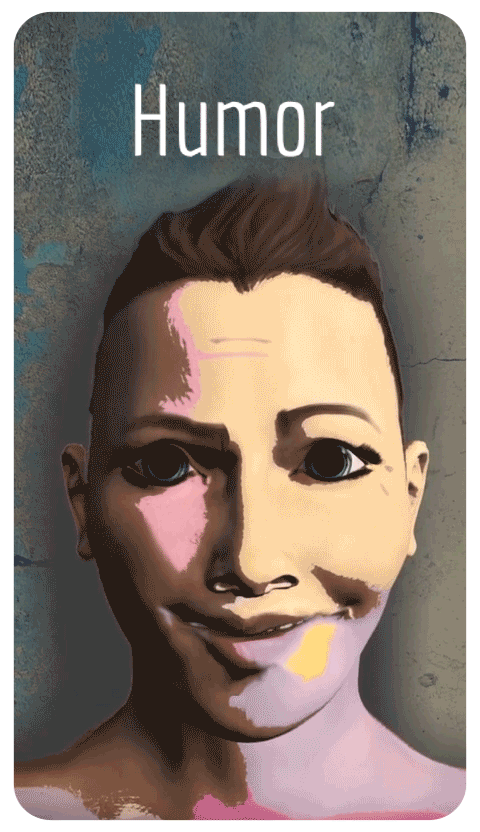



What happens when I stop laughing at my pain—and start listening to the part of me that laughs?
This week, I pulled the Humor card from Parts in Me and decided to ask it a few questions—just to see what it might say back.
Because humor has always been here with me.
It sneaks in during fear, slides into grief, fills the silence in shame. Sometimes it’s been the rope that pulled me out of the dark. Other times, it’s been the wall that kept me from touching what hurt.
So I asked Humor what it was really trying to do.
Me: You show up even before I know what I’m feeling. Why?
Humor: Because the feelings scare you, and someone has to stay calm.
Me: But then no one sees what’s underneath.
Humor: They will. When you’re ready. My job is just to buy you time.
Me: Time for what?
Humor: To remember you’re safe enough to feel.
That stopped me.


I always thought humor was the opposite of vulnerability. If I laughed, I wasn’t being serious. If I joked, I wasn’t really connecting.
But maybe humor isn’t the enemy of depth.
Maybe it’s what keeps me close enough to get there.
Humor doesn’t erase what hurts—it sits beside it. It makes space to breathe. It whispers, stay a little longer, you can handle this.
And when I look back, the times humor truly helped weren’t when it pushed feelings away, but when it gave me a softer way to stay with them.
We often think of humor in therapy as avoidance. And yes, sometimes it is. But it can also be protection. Or survival. Or even connection.
For clients, humor might be the safest way to let something unbearable into the room.
For therapists, humor can be a gentle way to validate the absurdities of pain without minimizing them.
The key isn’t to cut humor out—it’s to notice what it’s doing. Is it buying time? Creating safety? Offering relief? Or hiding something that needs attention?
That’s why I created Parts in Me—to help clients (and therapists) talk with the inner voices that show up in complex ways. Sometimes Humor is one of those voices. Sometimes Anger, or Control, or Doubt.
The cards give these parts space to speak, instead of being pushed aside. Because when we listen to them, they often reveal they were trying to help all along.
New to OK2Feel cards? See how they work and how to use them here.


I’m Hilit, the creator of OK2Feel. I design emotional tools and card decks that help people talk about feelings safely, creatively, and without pressure. Read my story >